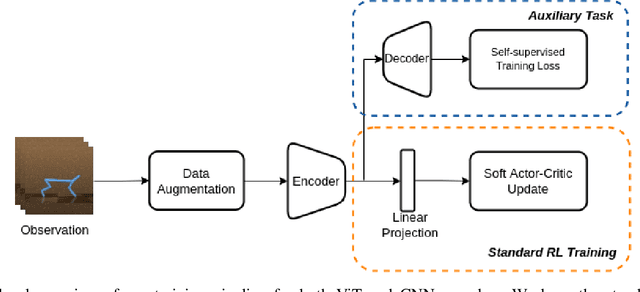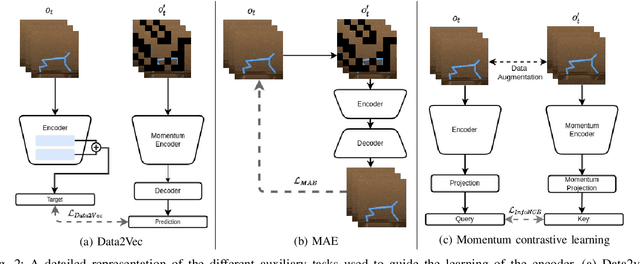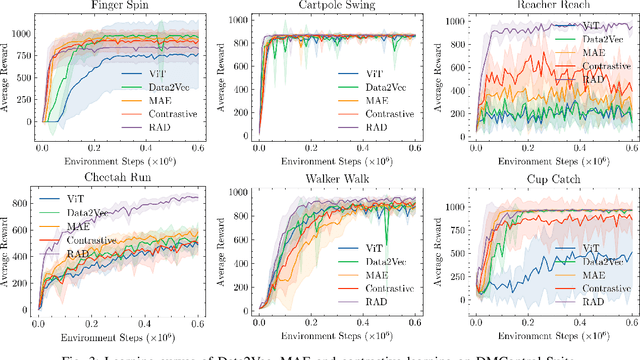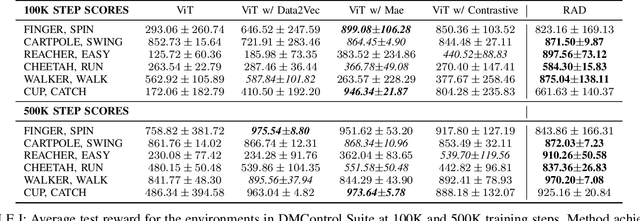Evaluating Vision Transformer Methods for Deep Reinforcement Learning from Pixels
Paper and Code
Apr 11, 2022



Vision Transformers (ViT) have recently demonstrated the significant potential of transformer architectures for computer vision. To what extent can image-based deep reinforcement learning also benefit from ViT architectures, as compared to standard convolutional neural network (CNN) architectures? To answer this question, we evaluate ViT training methods for image-based reinforcement learning (RL) control tasks and compare these results to a leading convolutional-network architecture method, RAD. For training the ViT encoder, we consider several recently-proposed self-supervised losses that are treated as auxiliary tasks, as well as a baseline with no additional loss terms. We find that the CNN architectures trained using RAD still generally provide superior performance. For the ViT methods, all three types of auxiliary tasks that we consider provide a benefit over plain ViT training. Furthermore, ViT masking-based tasks are found to significantly outperform ViT contrastive-learning.
 Add to Chrome
Add to Chrome Add to Firefox
Add to Firefox Add to Edge
Add to Edge